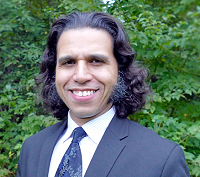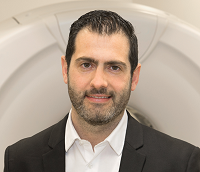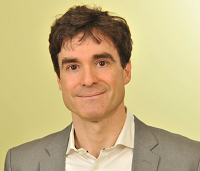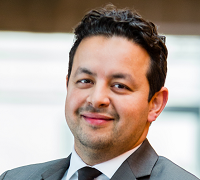Four Canada Research Chairs are currently conducting cutting-edge work under the direction of Polytechnique professors with a total of $3.8 million in new Government of Canada funding recently announced by the Honourable Kirsty Duncan, Minister of Science and Sport. Two of these chairs are new, while the other two have been renewed.
Tier 1 Canada Research Chairs are held by outstanding researchers who are recognized by their peers as world leaders in their field. They benefit from annual funding of $200,000 for seven years and are renewable once. Tier 2 Canada Research Chairs are held by outstanding new researchers recognized by their peers as likely to become leaders in their field. These chairs receive annual funding of $100,000 for five years and are renewable once.
Here is a description of these research chairs:
Canada Research Chair in Numerical Modelling and Experimental Simulation in Earthquake Engineering

Chairholder: Najib Bouaanani, Professor, Department of Civil, Geological and Mining Engineering, Polytechnique Montréal
Chair type: new Tier 1 Chair
Professor Najib Bouaanani’s research focuses primarily on development of state-of-the-art methodologies and tools for theoretical, numerical and experimental modelling and simulation of the behaviour of civil engineering works (e.g., dams, buildings, bridges) in response to earthquakes or other extreme demands (e.g., low temperatures, shocks, rises in water level, floods).The main objective of this work is to develop and implement original models and innovative simulations of the behaviour of structures subjected to seismic hazards. The Chair’s work will provide engineers, researchers and managers with powerful and effective tools to improve the earthquake-resistant design of new buildings and better assess the seismic safety of existing structures. The Chair will also develop innovative rehabilitation solutions to mitigate the effects of earthquakes on civilian infrastructure.
Canada Research Chair in Medical Imaging and Assisted Interventions
 Chairholder: Samuel Kadoury, Associate Professor, Department of Computer Engineering and Software Engineering, Polytechnique Montréal
Chairholder: Samuel Kadoury, Associate Professor, Department of Computer Engineering and Software Engineering, Polytechnique Montréal
Chair type: renewed Tier 2 Chair
Dr. Samuel Kadoury’s research focuses on the design of innovative technologies that will provide personalized image-guided diagnosis and treatment to improve the accuracy of procedures and reduce the risk of complications. This work focuses on the creation of new processing algorithms in biomedical engineering and medical imaging that will be used to model organs and predict the evolution of diseases over time.
The work also aims at developing ways to conduct image-guided interventions that will explore the preparation phase of a procedure by using road-mapping from a series of images. Prof. Kadoury’s work also focuses on examining new fibre-based instrument tracking technologies to ease the workflow of radiologists and surgeons, and on development of non-invasive approaches to monitor therapy delivery.
Canada Research Chair in Modelling and Control of Unsteady Aircraft Aerodynamics
 Chair: Éric Laurendeau, Professor, Department of Mechanical Engineering, Polytechnique Montréal
Chair: Éric Laurendeau, Professor, Department of Mechanical Engineering, Polytechnique Montréal
Chair type: new Tier 1 Chair
Professor Eric Laurendeau’s work focuses on the study of unsteady aerodynamic flow phenomena that have a considerable impact on performance, increased durability (e.g., CO2 emissions) and safety (e.g., adverse weather conditions such as icing and atmospheric turbulence) when an aircraft is in flight, for the design of next-generation aircraft.
This work aims to develop innovative modelling and digitization approaches for the study of unsteady-flux multi-fidelity formulas for the analysis and control of aircraft stall and buffet, as well as multidisciplinary phenomena such as aeroelasticity, in-flight vibration and in-flight icing. The Chair’s work also aims to establish an experimental program to validate and understand the importance of phenomenological models in unsteady aerodynamics.
Canada Research Chair in Nanoscale and Quantum Semiconductors
 Holder: Oussama Moutanabbir, Associate Professor, Department of Engineering Physics, Polytechnique Montréal
Holder: Oussama Moutanabbir, Associate Professor, Department of Engineering Physics, Polytechnique Montréal
Chair type: renewed Tier 2 Chair
Professor Oussama Moutanabbir’s work focuses on the development of new generations of semiconductors whose nanoscale and quantum properties are adjustable on demand.
This work aims to expand the fundamental understanding of the physical properties of matter and the use of phenomena such as quantum confinement, tunneling, spin dynamics, and phonon transport. Prof. Moutanabbir’s work aims to develop innovative devices that will be used for applications in nanoelectronics, photonics, ultrasensitive detection and imaging, renewable energy, and quantum information.
These four Canada Research Chairs currently in operation at Polytechnique Montréal are among 185 chairs that received $158.2 million in funding as part of the Canada Research Chairs Program. In Quebec, 53 Canada Research Chairs in 12 institutions received a total of $44.5 million in funding.
To learn more:
Expertise profile, Professor Najib Bouaanani
Expertise profile, Professor Samuel Kadoury
Expertise profile, Professor Éric Laurendeau
Expertise profile, Professor Oussama Moutanabbir
Website of the Department of Civil, Geological and Mining Engineering at Polytechnique Montréal
Website of the Department of Computer Engineering and Software Engineering at Polytechnique Montréal
Website of the Department of Mechanical Engineering at Polytechnique Montréal
Website of the Department of Engineering Physics at Polytechnique Montréal
Website of the Canada Research Chairs Program




 A unique international forum for public research organisations and companies to connect their external engagement with strategic interests around their R&D system.
A unique international forum for public research organisations and companies to connect their external engagement with strategic interests around their R&D system.